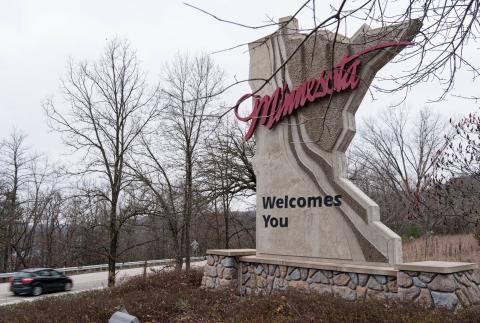Photo by Lorie Shaull / Flickr
Bloomington is 1 of 5 cities in Minnesota that uses ranked choice voting for its city elections. However, this could change if opponents to reform have their way in November.
A majority of Bloomington voters approved the use of ranked choice voting (RCV) in 2020, but anti-RCV groups have relentlessly tried to roll it back in cities across the state.
For example, there was an effort in 2023 to repeal RCV in Minnetonka which also approved its use in 2020 with 54.7% of the vote. City voters ended up rejecting repeal by a wider margin 3 years later.
Now RCV advocates are mobilizing to save the alternative voting method in Bloomington, where an amendment to the city charter that would repeal the new voting system is on the ballot.
City resident and Vote No Campaign Co-Chair Laura Calbone says there is no reason for repeal.
“Just four years ago, a majority of Bloomington voters chose to adopt RCV in response to a primary system that discouraged voter engagement and cost taxpayers $100,000 per election cycle," she said in a release sent to IVN.
"After two local elections using RCV, it is clear that the new system has promoted increased participation and streamlined our city’s election system,”
The city's election system prior to RCV's adoption used primary elections whenever there were more than two candidates running for office. The Vote No campaign says these primaries only saw a 5-10% turnout among city voters.
Under RCV, there are no primary elections. Candidates who qualify for the city ballot appear in the general election and voters can rank them in order of preference (1st choice, 2nd choice, 3rd choice).
If a candidate gets over 50% of first-choice selections, they win outright. If no candidate gets a majority, an instant runoff kicks in that eliminates the last place candidate and applies their next choices to the RCV tabulation.
The process continues until a single candidate has a majority of the vote. To date, however, a majority of elections in the city have not had to go past the first round of tabulation.
The Minnesota Star Tribune reports:
"Both supporters and opponents acknowledge it’s difficult to pinpoint whether [RCV] changed the outcome of Bloomington races, in part because there’s not a definitive way to know who would have won the primary and competed in the general election under the old system."
The report adds, "Of the 10 most recent Bloomington races, six were decided in the first round and four were tabulated using [RCV] methods."
The Vote No campaign asserts that the first two election cycles under RCV's use show it has had some positive impacts.
For example, a 2021 exit poll conducted by FairVote Minnesota shows that 77% of voters found RCV to be simple to use. It also found that 61% of voters "like and want to keep using" it, which is 10 points higher than the 2020 vote to adopt it.
The Vote No campaign also says election turnout is higher under RCV. In 2023, city turnout was 36% -- and while that may not seem like a high turnout, it was the highest turnout in two decades.
The campaign also notes that 7 of the 16 candidates on the city ballot in 2023 were women or people of color, 5 of whom won election to the 7-member city council.
"Ranked choice voting is a simple, proven reform to ballots that is used by five cities in Minnesota, two states, and over 50 other jurisdictions across the country," the campaign states.
"We know from polling here in Minnesota and elsewhere that voters consistently say that RCV is simple to use, and that they like it and want to keep using it."
Efforts to repeal RCV in Minnetonka and Bloomington are part of a trend seen among anti-RCV groups to immediately seek repeal before giving it a chance. It's happened across the country, including in Maine and -- in 2024 -- Alaska.
